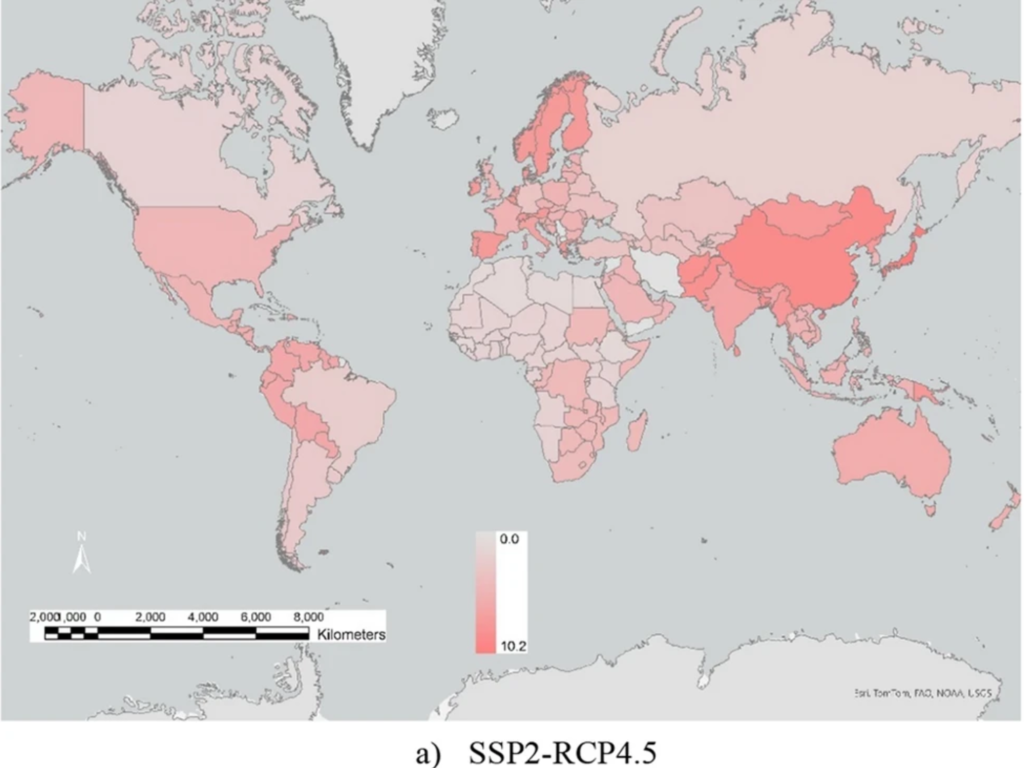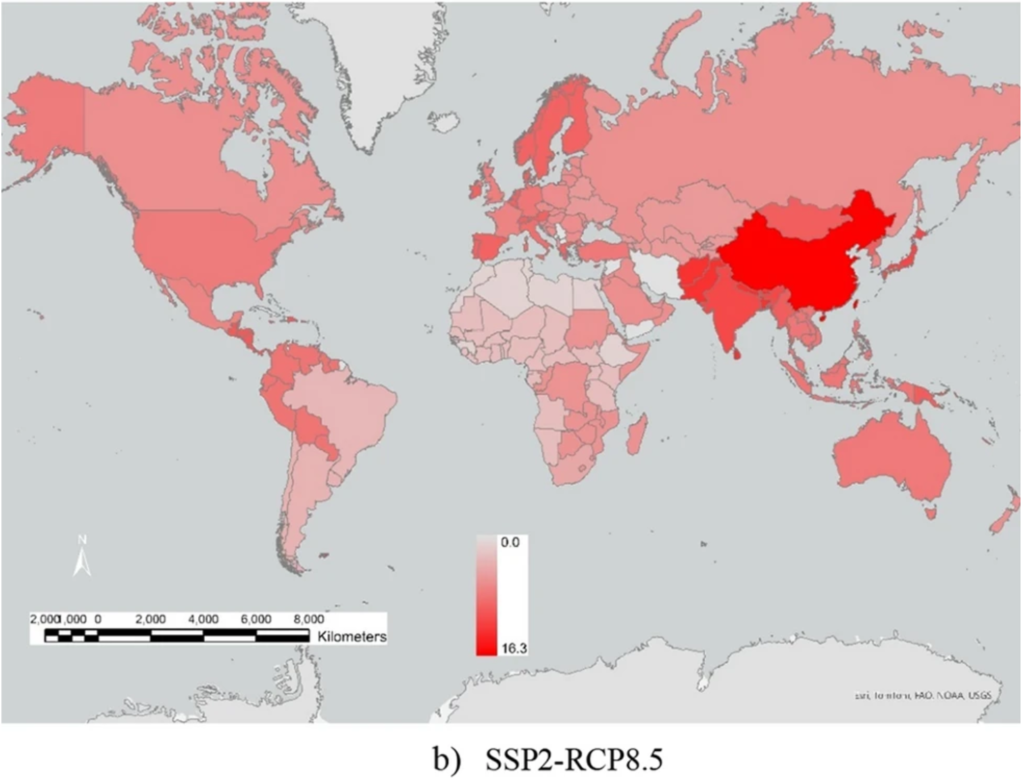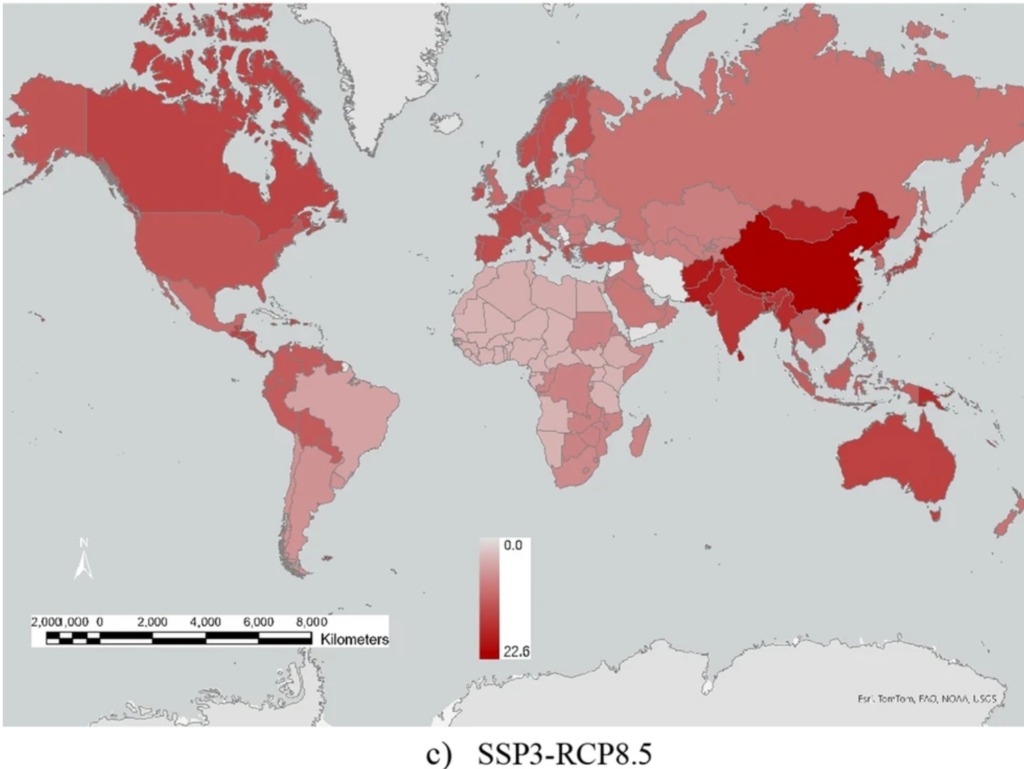A study published in Scientific Reports indicates that global food production could decrease by 14% by 2050, potentially leaving 1.36 billion more people severely food insecure. Climate change poses a serious threat to the global food production system, which is heavily dependent on ecosystems and water resources. Increasing water extraction for a variety of industries, particularly irrigated agriculture, exacerbates the effects of heat and water stress on global food production.
Regional food production reduction from irrigated agriculture due to heat stress and water stress in 2050 relative 2020 (% ranges). Model output; maps generated using ArcGIS Pro 3.3 (https://www.esri.com).



Integrated assessment models (IAMs), particularly in scenarios involving inequality and rivalry between regions, have brought to light increased food insecurity as a result of dietary changes, population growth, and agricultural efficiency.
Emissions mitigation measures frequently result in increased production costs and food prices, which disproportionately impact low-income areas. To assess the intricate interdependencies that underlie global food security, we need more comprehensive models. Existing Integrated Assessment Models (IAMs) lack detailed transparency regarding damage functions and temporal dynamics.
An intertemporal Computable General Equilibrium (CGE) model was employed in the study to project the effects of climate change on food security and production worldwide by 2050.




